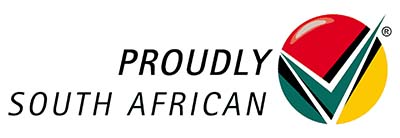Asset management compliance is all about following the rules that govern how a company takes care of its stuff.
This includes things like machinery, buildings, vehicles, and even computer software. There are two main types of compliance to consider:
- External Compliance: These are the laws and regulations set by governments or industry watchdogs. They can cover things like safety standards, environmental regulations, and financial reporting requirements. Not following these rules can lead to fines, penalties, or even business closure.
- Internal Compliance: These are the policies and procedures that a company sets for itself to manage its assets effectively. This might include things like preventive maintenance schedules, inventory control procedures, and disposal guidelines. Sticking to these internal rules helps ensure that assets are used efficiently and last as long as possible.
Key Facts
- Overview: Audit compliance in asset management ensures adherence to external and internal rules governing asset care.
- Compliance Standards: South Africa follows the International Standards on Auditing (ISA), the King Code on Corporate Governance, and the Protected Disclosures Act (PDA).
- Importance: Audit compliance avoids fines, protects reputation, improves efficiency, and helps achieve targets in asset management.
- Challenges: South African organizations face complex regulations, frequent updates, staff shortages, data management issues, and internal control weaknesses.
- Solutions: Strategies include investing in compliance software, continuous learning, strengthening internal controls, leveraging external expertise, and fostering a compliance culture.
Compliance Standards
There are numerous compliance standards relevant to audit compliance in South Africa, but some of the most common include:
International Standards on Auditing (ISA):
These are internationally recognized auditing standards developed by the International Auditing and Assurance Board (IAASB).
ISA’s set out the general requirements and specific procedures that an auditor should follow when conducting an audit.
The IRBA, the audit profession regulator in South Africa, incorporates ISAs into their auditing standards framework for registered auditors.
King Code on Corporate Governance (King IV):
The King Code is a set of principles and recommendations for good corporate governance in South Africa.
While not mandatory by law, it’s highly influential, and following the code’s recommendations is a strong indicator of good governance.
The King Code includes guidance on financial reporting, risk management, and internal audit, all of which are relevant to audit compliance.
Protected Disclosures Act (PDA):
The PDA encourages honest reporting of wrongdoing within organizations and protects whistleblowers from reprisal.
This act is relevant to audit compliance because it provides a mechanism for auditors to report suspected financial misconduct without fear of retaliation.
Importance of Audit Compliance
So, why is audit compliance important in asset management? Here are a few reasons:
- Avoids Fines and Penalties: If an audit reveals that a company is not following the rules, they can be hit with hefty fines.
- Protects Reputation: Compliance issues can damage a company’s reputation and make it less attractive to investors and customers.
- Improves Efficiency: Following good asset management practices can help a company save money by extending the life of its assets and reducing downtime.
- Achieves Targets: When assets are properly managed and compliant, it’s easier for a company to meet its operational and financial goals.
Challenges and Solutions of Audit Compliance in South Africa
Challenges
South African organizations face several hurdles in maintaining audit compliance. Here’s a breakdown of some key challenges:
- Complex Regulatory Landscape: The South African regulatory environment is known for its complexity, with multiple regulatory bodies issuing various standards and requirements. Keeping up-to-date with these changes can be a significant challenge for businesses, especially for smaller entities with limited resources.
- Frequent Regulatory Updates: Adding to the complexity, regulations are frequently amended, making it difficult for companies to adapt their compliance processes quickly enough. This constant change can lead to confusion and inadvertent non-compliance.
- Skilled Staff Shortage: The audit profession, particularly internal audit, faces a shortage of skilled professionals. This lack of qualified personnel can make it challenging to maintain a robust internal audit function and conduct thorough audits.
- Data Management Issues: In today’s digital age, managing vast amounts of data is crucial for audits. Inconsistent data recording, storage, and retrieval can make it difficult for auditors to obtain the information they need, hindering the audit process and potentially leading to inaccurate results.
- Internal Control Weaknesses: Inadequate internal controls can create vulnerabilities that increase the risk of fraud or errors. Weaknesses in areas like segregation of duties, authorization processes, and recordkeeping can make it difficult to detect and prevent non-compliance issues.
Solutions
There are several strategies South African organizations can adopt to improve their audit compliance:
- Invest in Compliance Management Software: Technology can be a powerful ally in managing compliance. Implementing software specifically designed for compliance purposes can streamline processes, automate tasks, and ensure adherence to regulations.
- Prioritize Continuous Learning: Regular training programs for staff on relevant compliance standards and best practices are essential. This ensures everyone in the organization understands their roles and responsibilities related to audit compliance.
- Strengthen Internal Controls: Conducting internal audits and risk assessments regularly helps identify and address weaknesses in internal controls. By implementing robust controls, organizations can prevent errors and minimize the risk of non-compliance.
- Leverage External Expertise: Partnering with external audit firms or consultants experienced in the South African regulatory landscape can provide valuable guidance and support in navigating complex compliance requirements.
- Foster a Culture of Compliance: Building a strong compliance culture within the organization is key. This involves promoting ethical behavior, encouraging employees to report suspected wrongdoing, and demonstrating a commitment to good governance from leadership.
Conclusion
In conclusion, mastering audit compliance is not just about ticking boxes; it’s about fostering a culture of integrity and transparency.
At Synergy Evolution, we remain steadfast in our commitment to upholding the highest standards of audit compliance, setting the stage for sustainable growth and success in the dynamic landscape of asset management in South Africa.
Join us on this journey towards excellence and accountability.








